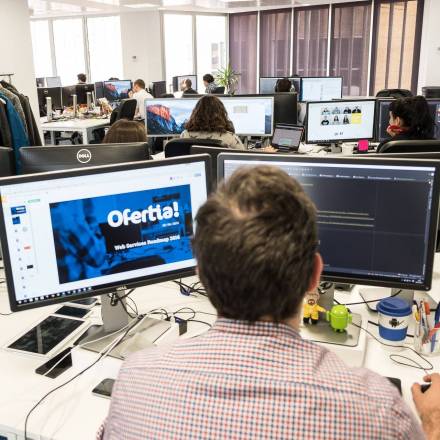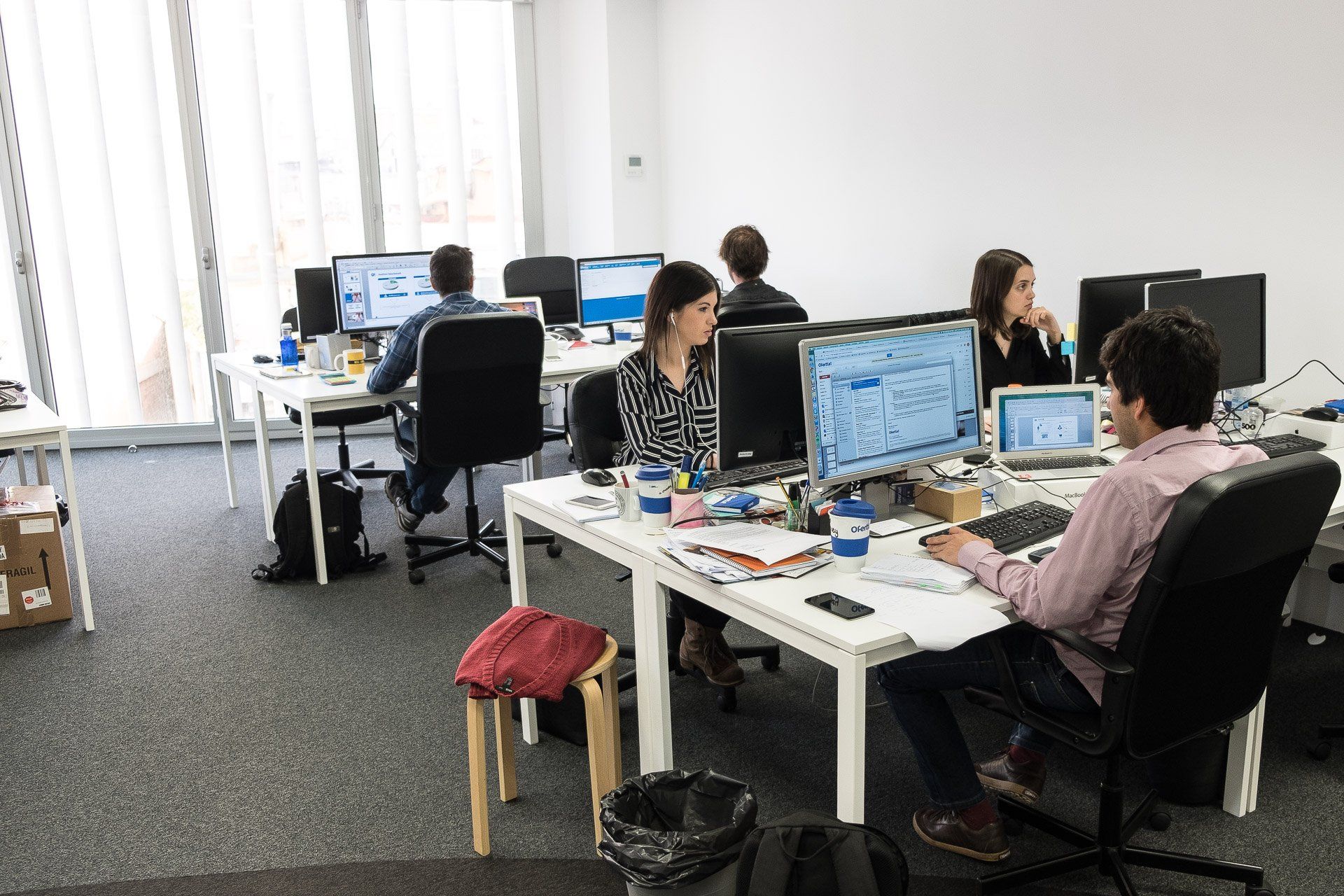
There is no doubt that arriving home and opening the letter box is such a monotonous task that we do not even realise we are doing it. At a time when the only letters delivered are –and even then increasingly less so- from the bank, leaflets from supermarkets or the local pizza place, we barely give them a moment's thought. That is until the day comes when we need to buy something and we can no longer find that juicy offer that came through the door. Having them online is an alternative, which is where Ofertia.com comes in, the platform that groups together and digitalises all the offers in local shops. Even though paper catalogues have not yet disappeared, in the past month 600,000 users in Spain have consulted the company's app at least four times, while 2.5 million have done so on the web.
"We have tried to revolutionise the way shops communicate with customers, substituting this channel of communication, which is very expensive and difficult to measure, with a very mobile digital model based on geolocation," explains Jaume Betrian, founder of Ofertia.com together with two colleagues who met on an MBA course four years ago in Barcelona's IESE business school, Thomas Roggendorf and Oriol Carreras. Among their clients are Dia, Carrefour, Media Markt and Leroy Merlin, but any shop or establishment can find a place in their shop window.
Customising the catalogue
Using Ofertia.com is easy, as the only information it asks for is the user's geolocation so that it can tell him or her what is nearby. By using it, the company can increasingly personalise the offers it shows to each user, based on their searches and the sectors they consult most frequently. "This also gives us information about our user and his or her evolution within the app, as the user who suddenly starts looking for nappies is someone who has just had a child. This type of behaviour, in real time, allows us to make better proposals to the client," he tells VIA Empresa.
The startup, formed in 2012 with 50,000 euros of private funding, plays with the idea that the person who works in Barcelona despite living in Sant Cugat, for example, ends up shopping in the city where he or she works and therefore, "does not care about the paper offers that arrive at home. Paper catalogues really do not work for us and we thought this clear inefficiency was an opportunity to do it better, especially seeing that in 2012 smartphones were 'taking off'. The idea was to mix these two trends!" says Jaume Betrian.
 |
| The Ofertia.com offices in Barcelona. Jordi Borràs |
The generalised use of smartphones has helped the company to take wing and in 2015 it registered a turnover of 2.8 million euros. Even though the figures vary from month to month, in March 2016 the web version was visited by 2.5 milion users in Spain, a million in Mexico, two million more between Colombia and Brazil and 600,000 among Sweden, Norway and Denmark, countries that also have the Bonial brand, the German company that is the global leader in digital catalogues and leaflets and, only recently, the owner of 64% of Ofertia.com. The takeover operation –for which figures have not been given- has provided the firm with financial stability and the chance of an international partner, both of which have helped.
Fighting the costs of paper
However, Betrian laments the fact that, despite the work done in the past four years, there has only been a slight reduction in spending on paper. "We are almost a complement rather than a substitute. In market analysis, when we ask if you have seen the paper catalogue before the digital version, almost 80% say no," he points out. The founder of Ofertia argues that the reason is that they reach a profile of user that is not the same as that for paper. "We are not a substitute, we do not tell our client that we can replace 80% of the spending on paper," he says.
The mobile app version of Ofertia has also had 1.5 million downloads in Spain and 2,700 monthly sessions by 600,000 users who use it on average four times a month. As can be seen, if the metrics are important to Ofertia, the people behind them are more so, the engineers, programmers... in short technicians, who are increasingly difficult to find in a market like that in Barcelona, which includes the large firms of the digital economy. "We need business intelligence people, data scientists, data analysts... profiles that did not exist before and that, for companies like ours in which everything is metrics, are now necessary. They are top people whose potential in using data analysis allows us to extract any type of metric and allow us to make decisions that have no comparison. It means being more efficient because metrics work and not making decision based on instinct," he says.
New recruiting
Despite 65 employees in its offices in plaça Letamendi in Barcelona –which have magnificent views of the city- and another six employees working in the Mexico office, Ofertia.com wants more. It will soon recruit between 10 and 15 programmers and to get them it will have to compete in the talent market, a resource that the company values over everything, which is something Betrian is keen to stress.
In fact, the group's first round of investment –in which it raised half a million euros to go with 50,000 euros from an ENISA loan- was basically to be able to get a good team together. "In the end the technology is developed by the team, which means the technological cost is a development cost. The team is made up of people who are working on and developing new technology. In the end, it is not really a case of having to buy any asset –if you take a look around the office, you will only see tables and computers and a lot of people- because the main investment is in the team."